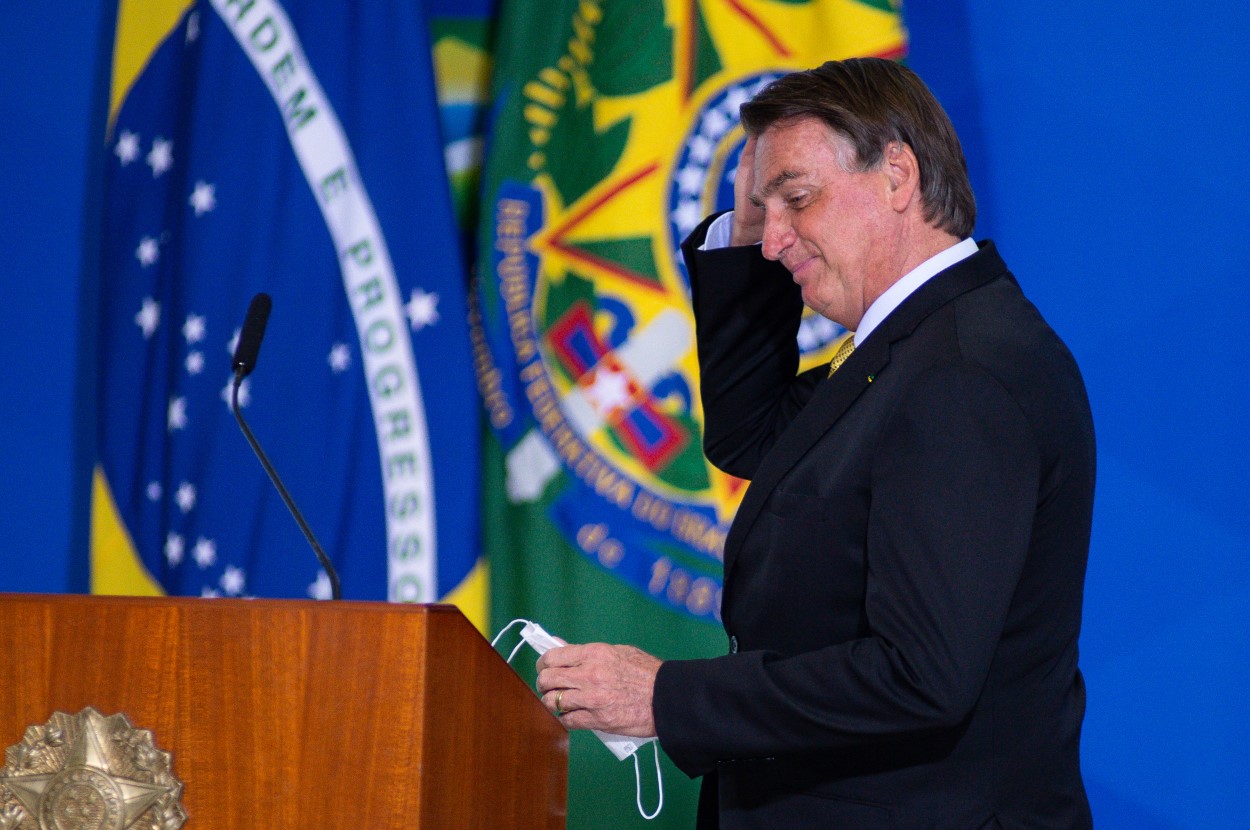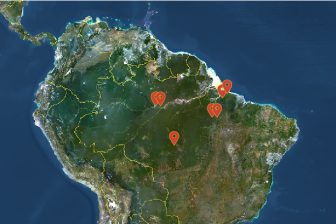SÃO PAULO – After successfully outmaneuvering his critics during his first two years in office, Brazil’s Jair Bolsonaro has entered the most challenging period of his presidency. While for now he retains the support in Congress to avoid impeachment, an unpredictable congressional inquiry into his handling of the pandemic and an alleged corruption scandal in his health ministry have forced the president to play defense for the foreseeable future.
With this stormy outlook, Bolsonaro may prove more susceptible to growing pressure around an issue he has so far resisted: reducing deforestation in the Amazon.
Increasingly unpopular and subject to growing protests, Bolsonaro’s current position is an uncomfortable one for a leader who normally manages to keep his opposition off balance through a mix of bluster, threats, diversion and entertainment. Emblematic of Bolsonaro’s troubles, the president recently fired his controversial environment minister, Ricardo Salles, who oversaw a historic surge in deforestation and the defunding of Brazil’s environmental watchdog. Until recently, Bolsonaro frequently praised Salles, even after the minister was targeted by federal police in an investigation into illegal logging in the Amazon. Such statements outraged environmentalists at home and abroad, but Bolsonaro’s embrace of his environment minister seemed to symbolize his imperviousness to domestic and international pressure.
That may be changing. Bolsonaro sacked Salles on June 23 after it emerged that Brazil’s Supreme Court was preparing to order Salles’ detention. Underlining the seriousness of the investigation, Brazilian police sent the minister’s cell phone to the United States to access his data – he refused to provide authorities with his password – and the Supreme Court revoked Salles’ passport and ruled he was barred from leaving the country. Yet Salles’ departure may also be an attempt by Bolsonaro to buy time in the context of growing impatience in the US government over the recent impasse in bilateral talks over Amazon deforestation.
Since Salles’ surprise dismissal, many observers, such as former Environment Minister Marina Silva, have predicted that little will change on deforestation as long as Bolsonaro remains president. There are several reasons that suggest they may be right.
For starters, Salles’ successor, Joaquim Álvaro Pereira Leite, possesses strong ties to Brazil’s farming lobby. For over two decades, Leite advised the Brazilian Rural Society, a cattle farmers’ lobby group which strongly supported Salles’ controversial policies. With Pereira, Bolsonaro may likely be signaling that he plans to continue resisting pressure from both the United States and European governments to reduce deforestation, which has broken records this year.
Meaningful change on the environmental front is also hampered by the issue’s significance to Bolsonaro’s overall political project and persona. Breaking his campaign promise of facilitating deforestation could cost Bolsonaro the support of an important part of his electorate, including ranchers, farmers, loggers and miners – groups represented by the powerful “cattle caucus” in Brazil’s Congress. For Bolsonaro, losing their backing could be greater than enduring continued international pressure. That became clear in April, when Bolsonaro gave a mollifying speech on deforestation to an international audience, only to reduce funding for environmental protection a day later.
However, it is still possible that if Bolsonaro’s troubles worsen, he may become more willing to bend to U.S. pressure and ultimately reach a deal on deforestation. The congressional inquiry is poised to continue for another three months, limiting the president’s capacity to change the subject of public debate. With increasing frequency, leading policymakers, such as Katia Abreu, president of the Senate’s Foreign Relations Committee and a strong defender of Brazil’s agribusiness, are voicing concern that the international backlash against Amazon deforestation could harm Brazil’s economy. Her arguments are likely to reverberate beyond Brazil’s borders once the approaching Amazon fire season heats up, the first since Biden became president.
So far, the threats of consumer boycotts abroad against Brazilian products, warnings of falling international investment in Brazil, and the specter of the non-ratification of the EU-Mercosur trade deal have not made much of a difference. Yet, provided that the Biden administration is willing to increase the pressure behind closed doors, rather than publicly, which would embolden Brazil’s president, an increasingly embattled and vulnerable Bolsonaro may be more willing to strike a deal than one confident of another electoral triumph in 2022.









